Magazine - Interview with Dave Formula
by Denzil Watson
published: 21 / 9 / 2008
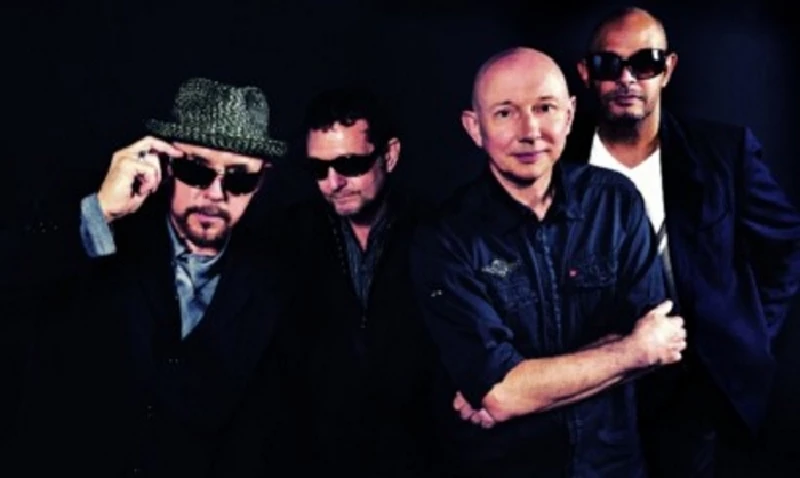
intro
Denzil Watson speaks to Dave Formula, the keyboardist with seminal post punk band Magazine, about their decision to reform for some shows next year for the first time since splitting in 1981
These days it's probably harder to name a new wave/punk band from the late 70's and early 80's that haven't reformed. When news, however, surfaced back in August of this year that Magazine were to reform for a brace of concerts in London, Glasgow and their native Manchester in February 2009 it was a bolt out of the blue. Let me cast your minds back to 1978. Magazine main man Howard Devoto was originally in the fledgling Buzzcocks. Having become quickly bored with the limitations of punk he split with Pete Shelley et al after a handful of gigs and one release (1977's 'Spiral Scratch EP') to form Magazine. With the line-up stabilised, including keyboardist Dave Formula, guitarist John McGeoch (RIP), drummer John Doyle and bassist Barry Adamson, the band went on to map out the blueprint for post-punk. Perhaps best known for their classic first single 'Shot by Both Sides' and four albums in as many years, including the excellent 'Real Life' and the career defining 'The Correct Use of Soap', over the years since their split in 1981, the band have been repeatedly covered and name-dropped by the likes of Morrissey, Radiohead and Mansun. Fast forward to 2008. A reformed Magazine are currently taking requests from fans via MySpace as to what they should play at next year's gigs which will be recorded for subsequent release as a live album. As Magazine fans around the world froth at the mouth at the prospects, it seemed like as good a time as any to settle down with the softly spoken, modest and most articulate Dave Formula to find out the whys and wherefores. PB : What have you been up to in recent years ? DF: For two years I lectured 20th century popular music. It was great. We'd lived in Lincolnshire for a while and I built a small recording studio and built up loads of contacts in London and lots of people were coming up and stuff was happening. But then it went a bit quiet so I thought I needed to boost the income a bit. I actually enjoyed it because it led me to research loads of stuff I was interested in and didn't know that much about. I also did an MA in Post-production for Film and TV at Sheffield Hallam University in about 2000. PB : Okay, let's get back to Magazine. It's been a while since you trod the boards hasn't it ? DF : 1980 was the last time we played. PB : That's an incredibly long time ago. What was the catalyst that got you back together? DF : (modestly) Well, it was me really because I've been putting a solo album together for the last two years and Barry and Howard and John all played on separate tracks on the album. It wasn't planned really but all this just made the connection in a slightly abstract sort of way because we weren't all together at the same time. But as a result of all this a promoter from Manchester who used to promote Magazine shows got in touch with me and said he'd seen I was doing an album and that he'd love to arrange any concerts I planned to do when I released the album. So I said, "Yeah, that would be fantastic". We had a few discussions on that and then later he got back in touch and said that he meant to ask me at the time, "What are the chances of Magazine getting back together." PB : What did you say to him ? DF : Well, I said that I honestly didn't think so because we'd had a couple of days together in 2005 where we just went into a rehearsal room in London and played together, just to see what it was like. Musically it gelled but it wasn't right for various reasons. Howard was still working in a photo agency, Barry has a very successful solo career. So it just wasn't the right time. But this time when I got in touch with everybody individually everybody said it felt right and within two weeks we'd decided. PB : It certainly wasn't something I'd predicted and it was a very pleasant surprise when I heard about the gigs. DF : A few people have said that. I don't think anyone saw it really, never mind us. It wasn't contrived in any way. It was a natural development and I don't want to be fatalistic but perhaps it was just meant to be. We just had to go through the route it went through. PB : Had you come close to reforming in the past prior to 2005's get-together ? DF : No. Various things filtered through from the guy that used to manage us, various offers from America etc but nothing that ever got past the point of saying "Oh, Okay". PB : Have you been surprised about the amount of excitement surrounding the gigs next year ? DF : Yeah, it's very good that there's this level of interest and all the goodwill that's come with it. Howard and I did a lot of press last week and people were incredibly enthusiastic and kind in what they were saying about the band. So yeah, surprised in a nice way. PB : For me, Magazine were ahead of their time back in the late 1970's. As a consequence do you think that your music still sounds rather contemporary ? DF : We were told that that's the situation by a lot of the people we spoke to last week. One of the questions was "Why do you think it still sounds contemporary?" and I said, "Because of the quality of Howard's lyric writing combined with the fact you had very strong individual musical voices in the band." With McGeoch, and Barry and the sounds I was putting together with keyboards, they came together to make another musical voice that has given it lasting value. There wasn't a weak member in the band really. It was a very strong voice collectively. PB : So all in all, it's going to be a very authentic Magazine sound when four out of the five original members take to the stage. Which brings us to the leading question....who is going to play guitar ? DF : We've got a short list that I don't really want to reveal and I think that would be a bit unfair. What we are planning to do is to go into a rehearsal studio for a couple of days and spend a few hours with the people who are on the short list and see how it works out for us and for them. PB : Are the people who are on the shortlist well known ? And are they from Manchester ? DF : A combination really. There's a couple from Manchester but we haven't decided yet if they'll make the shortlist. As soon as it's all decided we will release the information though. PB : Okay, so on to another question that you may not be able to answer yet. Have you thought about doing anything beyond the gigs ? DF : Well, as you may perhaps expect we've already had quite a lot of interest from other parts of the world to play there. But the general opinion amongst us all is, "Let's just see how these initial shows go and completely think about it afterwards." In all fairness though, I don't think that we'd look at this as a collective long-term thing in any way because I think it's a case of diminishing returns. Maybe we get to the point after these shows where it's so good we will think, "Well, how about maybe writing some new material". That is the only way I could see it lasting more than a little while after these initial gigs. And, as of yet, there's absolutely no plans to do that. PB : So at the shows it's going to be exclusively old material ? DF : Yes. The only difference will be that we will be looking at material from the fourth studio album and playing some of that live as we have never played it outside of recording it. PB : The songs you are going to play at the shows are being voted on by fans via MySpace. Are they not ? DF : Yes, the guy that looks after the website thought it would be an interesting route to ask people what they'd like to hear. It's just a bit of fun as much as anything. PB : What do you think the demographic of the crowd will be when you walk out on stage in London next February ? DF : Hopefully it will be a mixture, but inevitably 50% of the crowd will be fans from the people who came to see us originally. And so that demographic is going to be mid-40's upwards. But because we've had these name checks from bands that have followed us and even contemporary bands now, hopefully we'll bring in some new people too. PB: I remember Mansun were big Magazine fans, covering 'Shot by Both Sides' and even to the point of getting in touch with Howard Devoto and working with him. DF : Yes that's right. And Morrissey released 'A song from under the Floorboards" about 18 months ago on one of his singles and there have been all sorts of live covers including Radiohead and Jarvis Cocker [covering 'Shot by Both Sides'-DW] and what have you. And although I can't tell you now, we're talking to one particular band that could well change that demographic because they're a very young band that makes sense as a support act. PB : Mmm, sounds interesting. Coming back to Magazine's recorded output, out of the four studio albums, which is your personal favourite ? DF : Apart from the obvious answer of each one of them at the time you are recording them, I think in some ways the most complete one is the third one ['The Correct Use of Soap'] in the sense that I think we'd reached a point musically, both playing and writing wise, where it was a much more collective and more developed album to work on. In the past it had been much more about one or two individuals working on particular songs with contributions from the other members but with this album it was a lot more democratic. There was a lot more equality in the contributions to each song and I think you can hear it as it really hangs together as an album. There's a maturity to it. PB : Taking you back to the late 70s', what are your abiding memories of the Manchester scene ? DF : Since I joined the band in late December 1978 it was just a whirlwind really. We never stopped from one day to another; recording, touring, recording etc. It was non-stop until we moved out of Manchester. What triggered a memory about that period was I watched the Joy Division documentary after the film 'Control' came out. It was those views of Manchester. It was looking like it was still in the 1940's and even some of the city centre shots looked like it was from another era. If you could go back [in time] you'd be surprised how grey and doomy it was. Now it's changed so much, physically. PB : Mentioning Joy Division, did you ever get to work with their producer Martin Hannett ? DF : I'd known Martin for three years before I joined the band and it was Martin that got me the job with Magazine. He was a very nice man but a lot of the things you read about Martin, especially those reports of the Martin Hannett-Joy Division interplay were, as far as we can all see and I was talking to Howard about this last week, a little bit exaggerated shall we say. He was a character if that's what we call him, but I don't think he was quite the Martin that came over in some of those reports. I don't know. Maybe he changed a lot. I last saw him in 1982 or something like that, though I did used to speak to him quite a lot. I ran a studio for quite a long time in London called The Strong Room and he used to call me and we'd have long chats about 'Coronation Street' at 3 or 4 a.m. in the morning. I used to be working quite late on sessions in the studio and he knew I did so he'd ring me up and we'd talk nonsense about 'Coronation Street'. PB : Coming back to your solo album, the thing that really kicked off the Magazine reformation, will it be out next year? DF : It'll be April now and it'll probably come out on Wire Sound. PB : I think you mentioned earlier that it features appearances by all of Magazine. DF: Yes. The tracks I did with Barry [Adamson] and John [McGeoch] were almost complete when they came and played on them, whereas the one with Howard was a real collaboration. I started off by sending him a really improvised piano piece. I felt it had Howard just written all over it so I got it to him and we developed it together. PB : Is there a Magazine sound to the album ? DF : Not really. I'd say it reflects lots of the different areas of music that I've worked in since I was 17. There are lots of Manchester influences in there. PB : Talking of different influences I think I read somewhere you and two other members of Magazine de-camped to Visage for a period. DF : That's correct, for a short period of time. That was John McGeoch, Barry Adamson and myself. It was part-time and we just did it as a hobby thing on the side. It never got in the way of Magazine and we fitted it in around our true musical adventure. That was just a bit of fun that did a lot better than we ever thought it would - both financially and sales wise. PB Dave Formula, thank you very much for taking time to answer all of the questions. All the best with the reunion shows and your solo album next year.
Picture Gallery:-
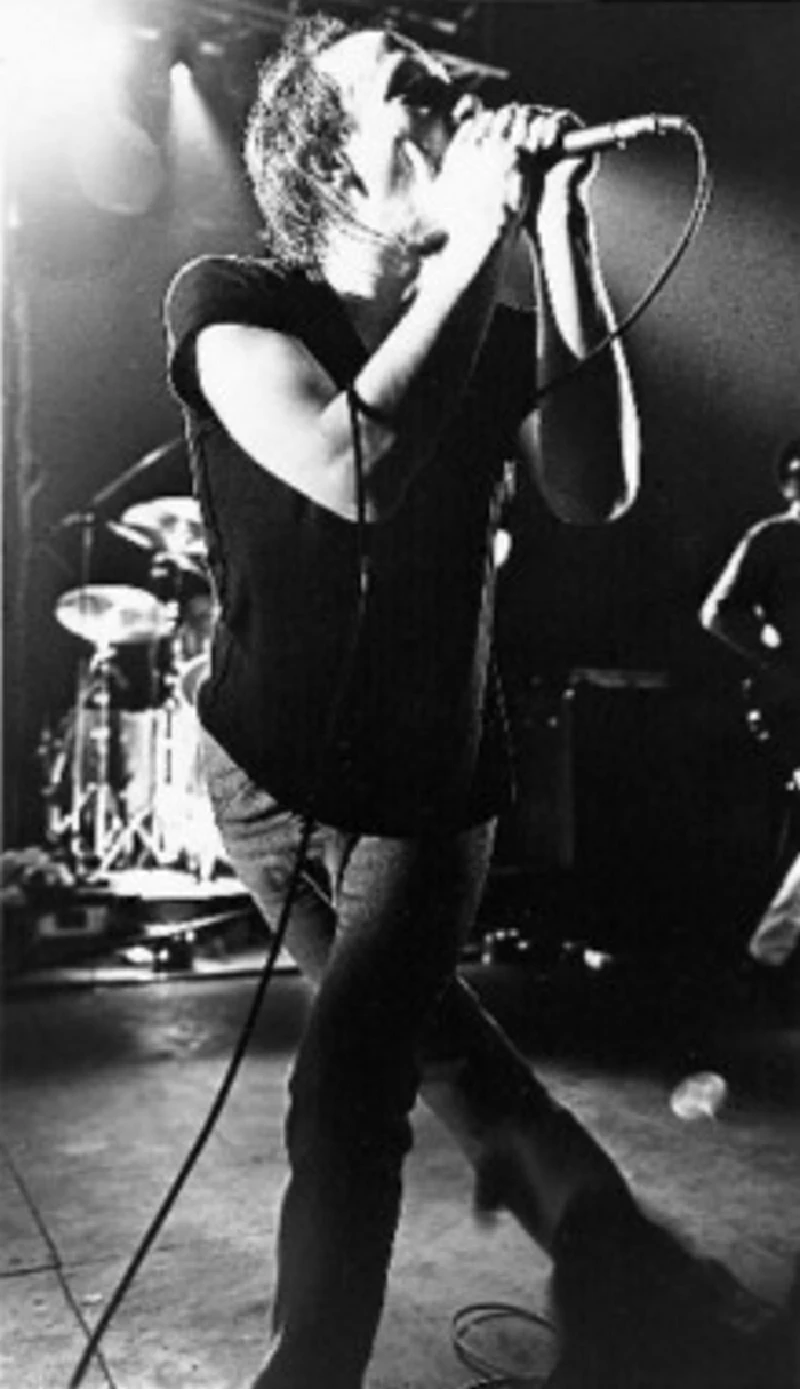
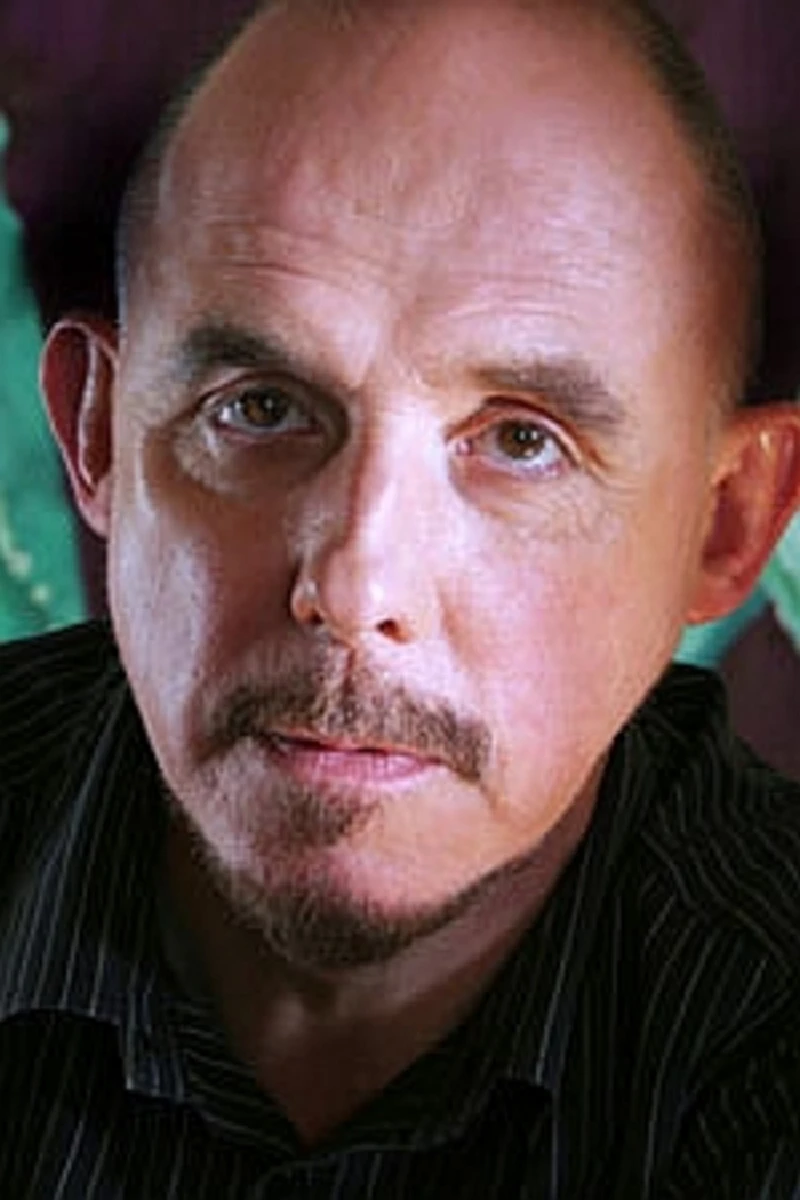
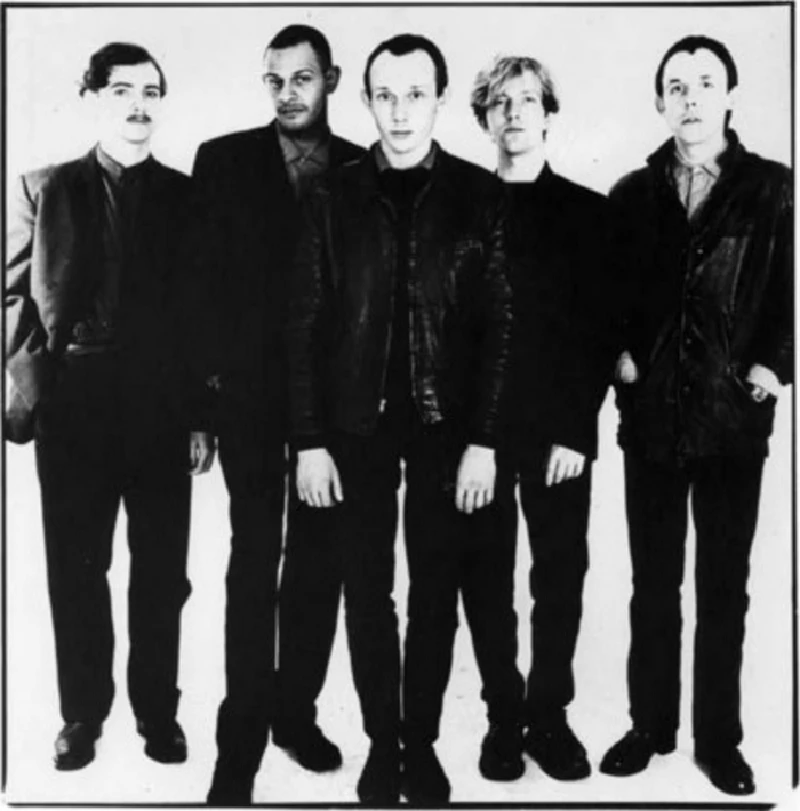
interviews |
|
Interview (2011) |
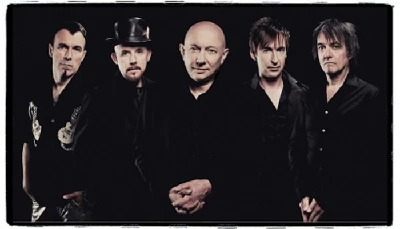
|
| Howard Devoto, the front man with Magazine, speaks to Denzil Watson about 'No Thyself', his reformed band's first album in twenty eight years, and touring |
most viewed articles
current edition
Carl Ewens - David Bowie 1964 to 1982 On Track: Every Album, Every SongArmory Show - Interview with Richard Jobson
John McKay - Interview
Colin Blunstone - Thalia Hall, Chicago, 16/7/2025
Billie Eilish - O2 Arena, London, 10/7/2025
Bathers - Photoscapes 1
Visor Fest - Valencia, Spain, 26/9/2025...27/9/2025
Loft - Interview
Sir Tim Rice - Interview
Robert Forster - Interview
previous editions
Manic Street Preachers - (Gig of a Lifetime) Millennium Stadium, Cardiff, December 1999Heavenly - P.U.N.K. Girl EP
Beautiful South - Ten Songs That Made Me Love...
Oasis - Oasis, Earl's Court, London, 1995
Peter Perrett - In Dreams Begin Responsibilities Interview Part One
Boomtown Rats - Ten Songs That Made Me Love....
Coldplay - Wembley Arena. London, 16/8/2022
Prolapse - Interview
Pixies - Ten Songs That Made Me Love...
Trudie Myerscough-Harris - Interview
most viewed reviews
current edition
Davey Woodward - Mumbo in the JumboSick Man of Europe - The Sick Man of Europe
Lucy Spraggan - Other Sides of the Moon
Amy Macdonald - Is This What You've Been Waiting For?
Phew, Erika Kobayashi,, Dieter Moebius - Radium Girls
Bush - I Beat Loneliness
Suzanne Vega - Flying With Angels
Alice Cooper - The Revenge of Alice Cooper
Blueboy - 2
Cynthia Erivo - I Forgive You
Pennyblackmusic Regular Contributors
Adrian Janes
Amanda J. Window
Andrew Twambley
Anthony Dhanendran
Benjamin Howarth
Cila Warncke
Daniel Cressey
Darren Aston
Dastardly
Dave Goodwin
Denzil Watson
Dominic B. Simpson
Eoghan Lyng
Fiona Hutchings
Harry Sherriff
Helen Tipping
Jamie Rowland
John Clarkson
Julie Cruickshank
Kimberly Bright
Lisa Torem
Maarten Schiethart